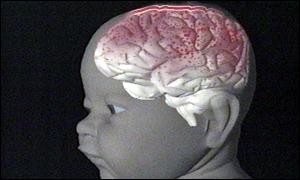Women who are about to have a baby always try to give birth naturally because they believe that natural delivery benefits the babies and also the moms in various ways. Since I was young, I heard many people saying that babies who are delivered naturally will be more intelligent than those who are delivered via c-section. Because I was born through c-section, I wondered if I am really less intelligent than those who are born naturally. I am going to focus my post on the relationship between c-section, natural birth, and intelligence.
“Ucp2” that “boost” your brain.
There is a research by Yale School of Medicine which shows that a protein called “Ucp2” in our hippocampus can be triggered during natural birth. The expression of Ucp2 can benefit brain development. According to the study, it “regulates neuronal differentiation of the hippocampus”. Researchers conducted studies measuring the Ucp2 expression on mice that are born through c-section and naturally. The result was consistent to the hypothesis that mice born naturally has more Ucp2 than mice born via c-section.
When I searched “c-section and intelligence” on google, every articles that come up are about babies delivered naturally have higher IQ. Also, every articles, such as this and this, are based on the research I mentioned above. However, although the research did prove that naturally born babies have more Ucp2 that can boost the development of babies brain, there is no exact link between high Ucp2 and high IQ.
Other research says NO
Question the link between Ucp2 and IQ, I found another study which failed to reject the null hypothesis: deliver method has nothing to do with intelligence.
First stage of the experiment: researchers used a sample size of 5000 children from age 6-7 randomly selected from a examination for entering primary school in Iran. Researchers collected data from their mother to see whether they are delivered via c-section or naturally. Second stage: two matched groups consisting of 189 children were selected. The children all have similar conditions such as “maternal age, parity, paternal education, birth ran k, and use of kindergarten and child’s rank”. This ruled out some of the potential confounding variables.
k, and use of kindergarten and child’s rank”. This ruled out some of the potential confounding variables.
To my surprise, the result from the first stage shows that children delivered via c-section have significantly higher IQ score than children delivered naturally. This is under the condition that mother and father’s education are not controlled. In the second stage, when they put potential confounding variables, such as parents’ education, in control, there are no significant difference in IQ score between children delivered naturally or via c-section. Researchers therefore concluded that IQ score may not be linked to deliver method. Instead, it is more likely to be linked to parents’ education level.
So… What’s the answer?
After looking at both studies, I should say that there is yet no sufficient evidence that can reject the null hypothesis (deliver method has nothing to do with intelligence). The first study can only show the relationship between Ucp2 and deliver method, but not Ucp2 and intelligence. The second study shows how children’s IQ are affected by parents’ education rather than delivery method. However more studies have to be done in order to reduce the chance of it being a fluke. I think it may be that Ucp2 can be a “booster” for babies brain, but how the brain develop still depends on factors like parents’ education level, environment, and so on. Therefore, we probably cannot say that natural delivery makes babies smarter.
Work Cited:
http://www.counselheal.com/articles/2486/20120810/babies-born-naturally-have-higher-iq-than-those-born-via-c-section-study.htm
http://news.yale.edu/2012/08/08/natural-birth-not-c-section-triggers-brain-boosting-proteins
http://www.thedailybeast.com/witw/articles/2013/06/02/babies-born-by-cesarean-section-may-not-gain-benefits-of-vaginal-microbiome.html
http://www.ncbi.nlm.nih.gov/pmc/articles/PMC3093169/
https://www.wikigenes.org/e/gene/e/7351.html
http://www.ncbi.nlm.nih.gov/pubmed/16487034
